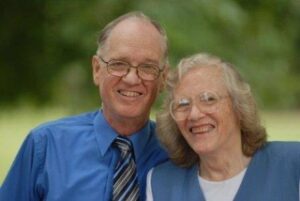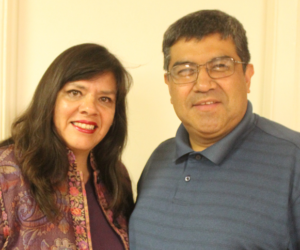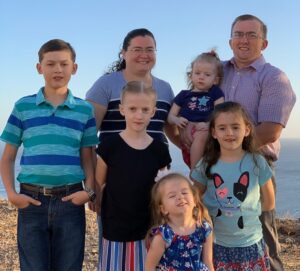July 6, 2020
No Comments
“The entrance of thy words giveth light; it giveth understanding unto the simple” (Psalm 119:130). The apostle Paul tells us that God’s Word is not bound. “Wherein I suffer trouble, as an evil doer, even unto bonds; but the word of God is not bound” (2 Timothy 2:9). The writer of Hebrews expands on this: “For the word of God is quick, and powerful, and sharper than any twoedged sword” (Heb. 4:12a). We know this to be true because we see it in the Bible, we read about it in history, and we have experienced it in our own lives.
The story is told of an unsaved anthropologist who warned a jungle chief, “There are some people called missionaries, and they have a book called the Bible. Don’t allow them to come to your village! They will destroy your culture.” The chief smiled and said, “You are too late. They have already been here. And it is very good for you that they came, otherwise I would have already killed and eaten you!”
Light is on its way to the 121,000 Tenek Indians of the state of San Louis Potosí, Mexico. In 2006, Tenek speaker Fernando Angeles and his wife, Christy, began translating the New Testament under the direction of Bibles International, a division of Baptist Mid Missions. This formal equivalent received text translation was completed in 2017. These descendants of the great Mayan empire can now hear God speaking their language. At the conclusion of the Tenek New Testament dedication service where the Gospel was preached in English, Spanish, and Tenek, an elderly man told Christy, “I couldn’t understand a word of the Spanish, but I could understand every word of Tenek, and I have faith.” In the past, the Gospel has made little impact on the Tenek nation, but pray that will soon change. Pray for the distribution of the Scriptures and for Tenek-speaking laborers to preach them!
In 1973, Baptist missionaries Ron and Cheryl Myers went to Thailand. There was still a war raging in that area, and the Myers labored and mastered both the Thai and Isan languages with North Vietnamese and Laotian troops only six miles away on the opposite side of the Mekong River threating to invade. With strong convictions concerning the Scriptures and how they should be translated, they took on the responsibility of putting God’s Word into the Isan language of Thailand and Laos, spoken by over twenty million souls. The project was completed in June 2016 and published under the auspices of Bearing Precious Seed Global. There is much demand for these New Testaments, and they are bearing much fruit in both the free and communist countries. The Isan New Testament has also been recorded and is being broadcast by radio. Pray that the light of the Isan Scriptures will shine brightly and give much understanding to the Isan nation!
In 2005, BBTI graduates Dan and Jennifer Olachea were sent to Uganda, Africa, by the Central Baptist Church of Ocala, Florida, with the help of BIMI. They began working in Mbarara, Uganda, with the goal of giving the 3.4 million Runyankori people a formal, well-translated copy of God’s Word in their heart language. Dan helped to train six Runyankori native translators, and they labored eleven years with him to accomplish this great task. Work has begun on the Old Testament that will give even more light to the Runyankori people.
When the Word of God is presented to people in the official language or a trade language of their country, they may understand very little of it. Even if they comprehend much, it is always a foreign book. But when it is in their heart language, it has much more authority. They can hear God speaking their language! Friend, did God speak to your heart this morning as you read His Word? Why was that? Because you have a Bible in your heart language. There are still three thousand seven hundred language groups that have no portion of the Bible. That fact should bother us. No doubt it bothers our Saviour!
Yes, the Bible is a miracle Book; it can accomplish wonders. But we must realize that it does nothing where men do not take it. It has no feet or wings to magically carry itself to far off places. Neither does it mysteriously appear in languages where it never existed. God does not inspire a man to write scripture in his Bibleless tongue. God inspired it once; now it must be translated. That is just how it works. God’s people realized this in the first century and began translating the Bible. Down through the centuries since, men have faced the death penalty for giving the Bible to people in their heart language. This job may be easier today, but we can be sure that Satan will fiercely oppose it. May God give us men and women with the courage of John Wycliffe, Martin Luther, William Tyndale, Jacques Lefèvre d’Étaples, Francisco de Enzinas, Casiodoro de Reina, and hundreds of others before and after them. The task today requires no less dedication than theirs.
Thank God for the many places where the light of His Word has entered, given understanding, and for some, even changed the course of history. “The people which sat in darkness saw great light; and to them which sat in the region and shadow of death light is sprung up” (Matthew 4:16). But there are still billions of lost souls waiting in very dark places for the Light. We need Bible translators, Bible printers, Bible distributors, and Bible preachers. Pick up your Bible. Hold it and look at it. Now, ask yourself, “What am I doing right now to put this Book in the hands of one who sits in darkness with no Bible?”
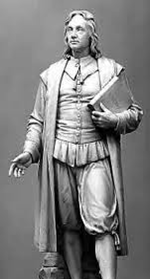 “You are a good man; we will not harm you.” Roger Williams was face to face with the fierce Native American warriors. There was fighting all around him, and the town was on fire. Roger was an old man now, and the Indians still respected him. Perhaps he was the only white man in the colonies that they trusted. This time, however, his peace-making efforts had been swept aside.
“You are a good man; we will not harm you.” Roger Williams was face to face with the fierce Native American warriors. There was fighting all around him, and the town was on fire. Roger was an old man now, and the Indians still respected him. Perhaps he was the only white man in the colonies that they trusted. This time, however, his peace-making efforts had been swept aside. Alexander Mackay was born in Scotland in 1849 and surrendered his heart to Christ as a young boy. Reports of David Livingstone, a fellow Scotsman and missionary in Africa, inspired young Mackay. He was interested in mechanics and building and went to engineering school, but he longed to serve God, too. In 1875, a letter published in the local paper spurred Mackay to action. The letter was written from Uganda by Henry Stanley: “King M’tesa has been asking me about the white man’s God… Oh that some practical missionary would come here…who can cure their diseases, build dwellings, and turn his hand to anything.”
Alexander Mackay was born in Scotland in 1849 and surrendered his heart to Christ as a young boy. Reports of David Livingstone, a fellow Scotsman and missionary in Africa, inspired young Mackay. He was interested in mechanics and building and went to engineering school, but he longed to serve God, too. In 1875, a letter published in the local paper spurred Mackay to action. The letter was written from Uganda by Henry Stanley: “King M’tesa has been asking me about the white man’s God… Oh that some practical missionary would come here…who can cure their diseases, build dwellings, and turn his hand to anything.”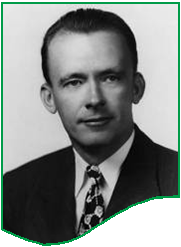 The patient stirred. Dr. Wallace tried to soothe him in his Tennessee-accented Cantonese. The patient was waking from an abdominal surgery. They alone were left in the upper story of the Stout Memorial Hospital in Wuchow, China. Everyone else had taken refuge in the basement when the air raid alarm had sounded. The year was 1938, and the Japanese were invading China. Just then there was an explosion on the roof directly above them—and doctor and patient were thrown to the floor! Miraculously, neither were hurt.
The patient stirred. Dr. Wallace tried to soothe him in his Tennessee-accented Cantonese. The patient was waking from an abdominal surgery. They alone were left in the upper story of the Stout Memorial Hospital in Wuchow, China. Everyone else had taken refuge in the basement when the air raid alarm had sounded. The year was 1938, and the Japanese were invading China. Just then there was an explosion on the roof directly above them—and doctor and patient were thrown to the floor! Miraculously, neither were hurt.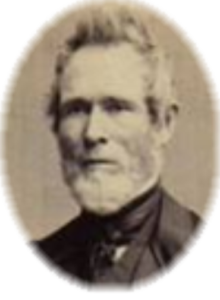 Nathan Brown, the oldest of five boys, was born on June 22, 1807, to devout Baptist parents. At age nine, he was convicted of his sinful condition after attending local revival meetings, trusted Christ as his Savior, and was subsequently baptized in a stream.
Nathan Brown, the oldest of five boys, was born on June 22, 1807, to devout Baptist parents. At age nine, he was convicted of his sinful condition after attending local revival meetings, trusted Christ as his Savior, and was subsequently baptized in a stream.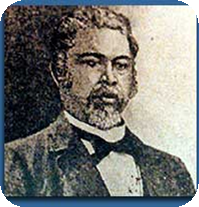 It was 1782, and George Leile didn’t see any other way: to escape slavery once more, he had to become another kind of slave. Years ago, his former master, Henry Sharp, had graciously freed Leile so that he could wholly pursue preaching the gospel in the Savannah area. But now that Sharp was dead, his family sought to re-enslave Leile. And so he struck a deal. To escape to Jamaica with his family, he would become the indentured servant of Colonel Kirkland.
It was 1782, and George Leile didn’t see any other way: to escape slavery once more, he had to become another kind of slave. Years ago, his former master, Henry Sharp, had graciously freed Leile so that he could wholly pursue preaching the gospel in the Savannah area. But now that Sharp was dead, his family sought to re-enslave Leile. And so he struck a deal. To escape to Jamaica with his family, he would become the indentured servant of Colonel Kirkland.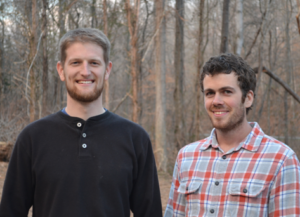 “Picture a teenage girl in a school cafeteria…. She’s slouched in a chair popping bubble gum. The whole world passes her by, yet she doesn’t even notice. Why? Because she’s tuned in to that little thing in her hand—a cellphone. Most likely she’s texting, instant messaging her friends, or browsing Facebook. Picture a young man on a computer in an internet café somewhere in a third world country. Or how about a young college freshman browsing the web on a laptop? The new generation coming along is radically different from you and me. I’m a young man myself and can barely recognize or connect with this new generation. But what if we could present the gospel to each of these people through their medium of communication? ….We can!” (~Jared Rowe)
“Picture a teenage girl in a school cafeteria…. She’s slouched in a chair popping bubble gum. The whole world passes her by, yet she doesn’t even notice. Why? Because she’s tuned in to that little thing in her hand—a cellphone. Most likely she’s texting, instant messaging her friends, or browsing Facebook. Picture a young man on a computer in an internet café somewhere in a third world country. Or how about a young college freshman browsing the web on a laptop? The new generation coming along is radically different from you and me. I’m a young man myself and can barely recognize or connect with this new generation. But what if we could present the gospel to each of these people through their medium of communication? ….We can!” (~Jared Rowe)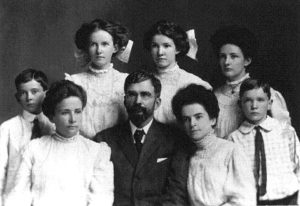 Fourteen-year old Attie Bostick sat in rapt attention, listening as her older brother, a missionary to China, preached on Mary anointing the feet of Christ with the most precious thing she had. “She hath done what she could.” Attie could not forget those words and years later would say, “That day God spoke to me, and said that I would not be doing all I could unless I was willing to go to China, too.”
Fourteen-year old Attie Bostick sat in rapt attention, listening as her older brother, a missionary to China, preached on Mary anointing the feet of Christ with the most precious thing she had. “She hath done what she could.” Attie could not forget those words and years later would say, “That day God spoke to me, and said that I would not be doing all I could unless I was willing to go to China, too.”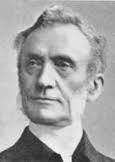 Ellie sat on the rough church bench clutching a small paperback book in her hands. Her brilliant white smile revealed her excitement as she spoke to me in Melanesian Pidgin, the trade language of Papua New Guinea. “This story strengthens my heart!” she exclaimed. The irony of her simple words silenced me for a few minutes. Ellie and I had just finished reading two chapters in a Pidgin biography of George Müller—a man who had been born two hundred years ago on the other side of her world but whose story was still living.
Ellie sat on the rough church bench clutching a small paperback book in her hands. Her brilliant white smile revealed her excitement as she spoke to me in Melanesian Pidgin, the trade language of Papua New Guinea. “This story strengthens my heart!” she exclaimed. The irony of her simple words silenced me for a few minutes. Ellie and I had just finished reading two chapters in a Pidgin biography of George Müller—a man who had been born two hundred years ago on the other side of her world but whose story was still living. Solomon Ginsburg asked his father—a Jewish rabbi—this question when he was only thirteen. Despite being soundly slapped in the face, his interest in the prophesy of Isaiah 53 did not die. As a young man, Ginsburg left his native Poland for London, England. There, a fellow Jew found him on the street and explained Jesus as the Messiah prophesied by Isaiah. After reading the New Testament, Ginsburg trusted Jesus Christ as his Savior, but was promptly disowned and cursed by all his relatives. He bore it gladly, recalling that Christ had been made a curse for him. Even several assaults by orthodox Jews in London could not dissuade him from his new-found faith.
Solomon Ginsburg asked his father—a Jewish rabbi—this question when he was only thirteen. Despite being soundly slapped in the face, his interest in the prophesy of Isaiah 53 did not die. As a young man, Ginsburg left his native Poland for London, England. There, a fellow Jew found him on the street and explained Jesus as the Messiah prophesied by Isaiah. After reading the New Testament, Ginsburg trusted Jesus Christ as his Savior, but was promptly disowned and cursed by all his relatives. He bore it gladly, recalling that Christ had been made a curse for him. Even several assaults by orthodox Jews in London could not dissuade him from his new-found faith. After Maude Cary heard of the heathen in Morocco, no physical or spiritual trial could deter her from joining the missionary work in North Africa. Just before her twenty-third birthday, Maude and four other co-workers embarked for Morocco with the promise to spend their life’s energies evangelizing the Muslims and Berbers. As they departed, they sang, Anywhere with Jesus I can safely go; Anywhere He leads me in this world below; Anywhere without Him dearest joys would fade; Anywhere with Jesus I am not afraid. Surely there would be opposition and heartaches, but Maude thought only of exciting campaigns to bring the gospel to wild tribes!
After Maude Cary heard of the heathen in Morocco, no physical or spiritual trial could deter her from joining the missionary work in North Africa. Just before her twenty-third birthday, Maude and four other co-workers embarked for Morocco with the promise to spend their life’s energies evangelizing the Muslims and Berbers. As they departed, they sang, Anywhere with Jesus I can safely go; Anywhere He leads me in this world below; Anywhere without Him dearest joys would fade; Anywhere with Jesus I am not afraid. Surely there would be opposition and heartaches, but Maude thought only of exciting campaigns to bring the gospel to wild tribes!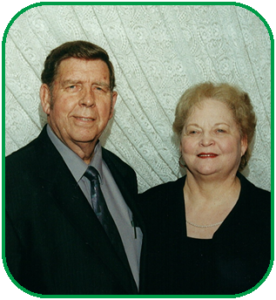 “A missionary who truly wants to see the gospel flourish and spread on the foreign field will work toward the end of seeing nationals won to the Lord and trained for the ministry to reach their own people.”
“A missionary who truly wants to see the gospel flourish and spread on the foreign field will work toward the end of seeing nationals won to the Lord and trained for the ministry to reach their own people.”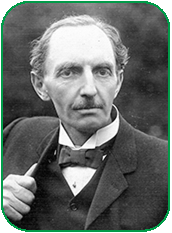 The son of a wealthy British planter, C.T. Studd accepted Christ at the age of 16. He lived the next several years in selfish pleasure and fame. An outstanding cricket player, he became captain of his team his last year at Trinity College, Cambridge. In 1882, Studd heard the preaching of Moody and began to be burdened for lost souls around him. However, it wasn’t until 1884, when his brother took seriously ill, that Studd was faced with the question, “What is all the fame and flattery worth … when a man comes to face eternity?” He made a decision and later wrote: “I knew that cricket would not last, and honour would not last, and nothing in this world would last, but it was worthwhile living for the world to come.”
The son of a wealthy British planter, C.T. Studd accepted Christ at the age of 16. He lived the next several years in selfish pleasure and fame. An outstanding cricket player, he became captain of his team his last year at Trinity College, Cambridge. In 1882, Studd heard the preaching of Moody and began to be burdened for lost souls around him. However, it wasn’t until 1884, when his brother took seriously ill, that Studd was faced with the question, “What is all the fame and flattery worth … when a man comes to face eternity?” He made a decision and later wrote: “I knew that cricket would not last, and honour would not last, and nothing in this world would last, but it was worthwhile living for the world to come.”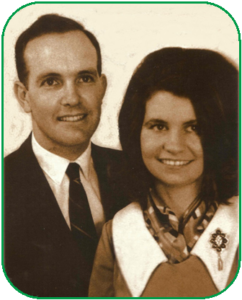 Born in 1941 in Duncan, Oklahoma, Thomas Laymon Sloan, M.D., grew up during the post-depression years. His unbelieving father permitted Tom’s mother to take him to church regularly. He was saved at age seventeen when a pastor led him to the Lord. Tom was a quiet but radical young man, criticized by some as an eccentric fanatic. He graduated as a pediatrician and planned to enter the medical field, until God changed his plans.
Born in 1941 in Duncan, Oklahoma, Thomas Laymon Sloan, M.D., grew up during the post-depression years. His unbelieving father permitted Tom’s mother to take him to church regularly. He was saved at age seventeen when a pastor led him to the Lord. Tom was a quiet but radical young man, criticized by some as an eccentric fanatic. He graduated as a pediatrician and planned to enter the medical field, until God changed his plans. “Should I tell you I do seriously think of leaving my native dwelling, my friends and companions for ever; would you upbraid me?” Harriet Atwood asked her sister in a letter. “[God] now offers me an opportunity of visiting the Heathen.” She then poured out the great conflict of her heart—the choice between living a normal life at home among friends or accepting the proposal of Samuel Newell, an aspiring missionary. Samuel was bound for India with Adoniram Judson; and in the year 1811, a life of missions was practically exile.
“Should I tell you I do seriously think of leaving my native dwelling, my friends and companions for ever; would you upbraid me?” Harriet Atwood asked her sister in a letter. “[God] now offers me an opportunity of visiting the Heathen.” She then poured out the great conflict of her heart—the choice between living a normal life at home among friends or accepting the proposal of Samuel Newell, an aspiring missionary. Samuel was bound for India with Adoniram Judson; and in the year 1811, a life of missions was practically exile.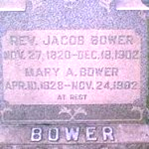 Jacob Bower was born to Christian parents who practiced regular morning and evening worship. His mother died when he was only six. The desire to see her in Heaven and the belief that only good people go there caused Jacob to live a virtuous life. But at age nineteen, he was influenced by Universalism which taught that God would save everyone. He later wrote, “I came to the conclusion that, if all the world are to be saved, I certainly would be included, therefore I was sure of salvation.” This false doctrine caused him to throw off his conviction of sin and spend five years in drunkenness and immorality.
Jacob Bower was born to Christian parents who practiced regular morning and evening worship. His mother died when he was only six. The desire to see her in Heaven and the belief that only good people go there caused Jacob to live a virtuous life. But at age nineteen, he was influenced by Universalism which taught that God would save everyone. He later wrote, “I came to the conclusion that, if all the world are to be saved, I certainly would be included, therefore I was sure of salvation.” This false doctrine caused him to throw off his conviction of sin and spend five years in drunkenness and immorality.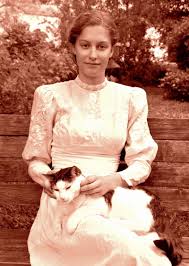 In 1887, Amy Carmichael heard the founder of China Inland Mission (Hudson Taylor) speak, and her life was never the same. Born in 1867, the oldest of seven, she grew up in privilege. Her father, a mill owner, provided a comfortable living, and she spent much of her childhood gleefully riding her pony along the shores of Northern Ireland. Her family attended the Presbyterian church where she received Bible training, but it was an encounter with a poor elderly woman that caused Amy to consider her Christian walk. As she stopped after church to help the woman with a heavy bundle, the Holy Spirit reminded her, “Every man’s work shall be made manifest…it shall be revealed by fire…” (1 Corinthians 3:13). Gold, silver, and precious stones or wood, hay, and stubble—was she building that which would last for all eternity? This question haunted her. She spent the rest of the day alone with God, and when she emerged, her life had a new purpose.
In 1887, Amy Carmichael heard the founder of China Inland Mission (Hudson Taylor) speak, and her life was never the same. Born in 1867, the oldest of seven, she grew up in privilege. Her father, a mill owner, provided a comfortable living, and she spent much of her childhood gleefully riding her pony along the shores of Northern Ireland. Her family attended the Presbyterian church where she received Bible training, but it was an encounter with a poor elderly woman that caused Amy to consider her Christian walk. As she stopped after church to help the woman with a heavy bundle, the Holy Spirit reminded her, “Every man’s work shall be made manifest…it shall be revealed by fire…” (1 Corinthians 3:13). Gold, silver, and precious stones or wood, hay, and stubble—was she building that which would last for all eternity? This question haunted her. She spent the rest of the day alone with God, and when she emerged, her life had a new purpose.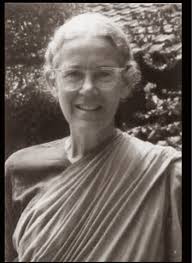
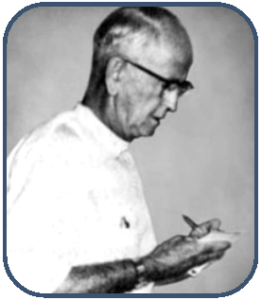 “Dr. Becker, I recognize that fellow! He has a bad reputation. You shouldn’t trust him out of your sight!”
“Dr. Becker, I recognize that fellow! He has a bad reputation. You shouldn’t trust him out of your sight!”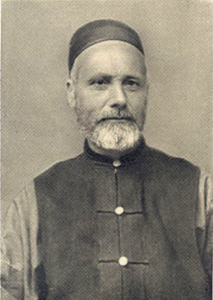 “Finding his contact with civilization was hindering him in his strenuous efforts to master the Mongolian language, he resolved…to persuade some Mongolian to receive him as an inmate of his tent…Gilmour feared nothing, but strode cheerfully over the plain making for the first tent he saw on the horizon.”1
“Finding his contact with civilization was hindering him in his strenuous efforts to master the Mongolian language, he resolved…to persuade some Mongolian to receive him as an inmate of his tent…Gilmour feared nothing, but strode cheerfully over the plain making for the first tent he saw on the horizon.”1 “I shall never go into the ministry until God takes me by the scruff of the neck and throws me in.” Most Christians would be surprised to know that these words were spoken by Oswald Chambers, author of the devotional book “My Utmost for His Highest.”
“I shall never go into the ministry until God takes me by the scruff of the neck and throws me in.” Most Christians would be surprised to know that these words were spoken by Oswald Chambers, author of the devotional book “My Utmost for His Highest.”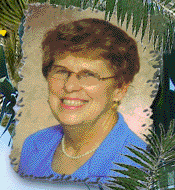 “From the very first, I wanted to go to the most primitive people in the world and so was thrilled when God gave me the privilege of going to West Papua.”* So writes Margaret Stringer, who served for thirty years among people who never heard the name of Jesus before 1980. After ten years on the southern coast of West Papua (1964-74), Margaret went to Senggo, an island village where mission work had just begun. As a linguist, she was there to help translate the Bible into the Citak language, but the team at Senggo had another assignment for her. Several villages had just been discovered further upriver—practicing cannibals who had recently killed four men from an oil company. The team sent Margaret with two Christian Senggo men to learn whether these villages spoke Citak, or some other language.
“From the very first, I wanted to go to the most primitive people in the world and so was thrilled when God gave me the privilege of going to West Papua.”* So writes Margaret Stringer, who served for thirty years among people who never heard the name of Jesus before 1980. After ten years on the southern coast of West Papua (1964-74), Margaret went to Senggo, an island village where mission work had just begun. As a linguist, she was there to help translate the Bible into the Citak language, but the team at Senggo had another assignment for her. Several villages had just been discovered further upriver—practicing cannibals who had recently killed four men from an oil company. The team sent Margaret with two Christian Senggo men to learn whether these villages spoke Citak, or some other language. When our language helper, Lilee, asked me what kind of meat I like to eat, I attempted to say “kai kap muu kap NGUA” (chicken and pork and beef). But instead, I came up with ‘kai kap muu kap NGU” (chicken and pork and SNAKE)! Lilee gave me a funny look and replied in English, “Really?!” –K.R, Laos
When our language helper, Lilee, asked me what kind of meat I like to eat, I attempted to say “kai kap muu kap NGUA” (chicken and pork and beef). But instead, I came up with ‘kai kap muu kap NGU” (chicken and pork and SNAKE)! Lilee gave me a funny look and replied in English, “Really?!” –K.R, Laos Our language tutor was teaching us to pray in the Indonesian language. We write out our prayer for his review and then read/pray them before class begins. My wife was thanking God for his mercy, but omitted an “h” sound in the middle of the word. She thanked God for his spider webs instead! —D.C.
Our language tutor was teaching us to pray in the Indonesian language. We write out our prayer for his review and then read/pray them before class begins. My wife was thanking God for his mercy, but omitted an “h” sound in the middle of the word. She thanked God for his spider webs instead! —D.C.